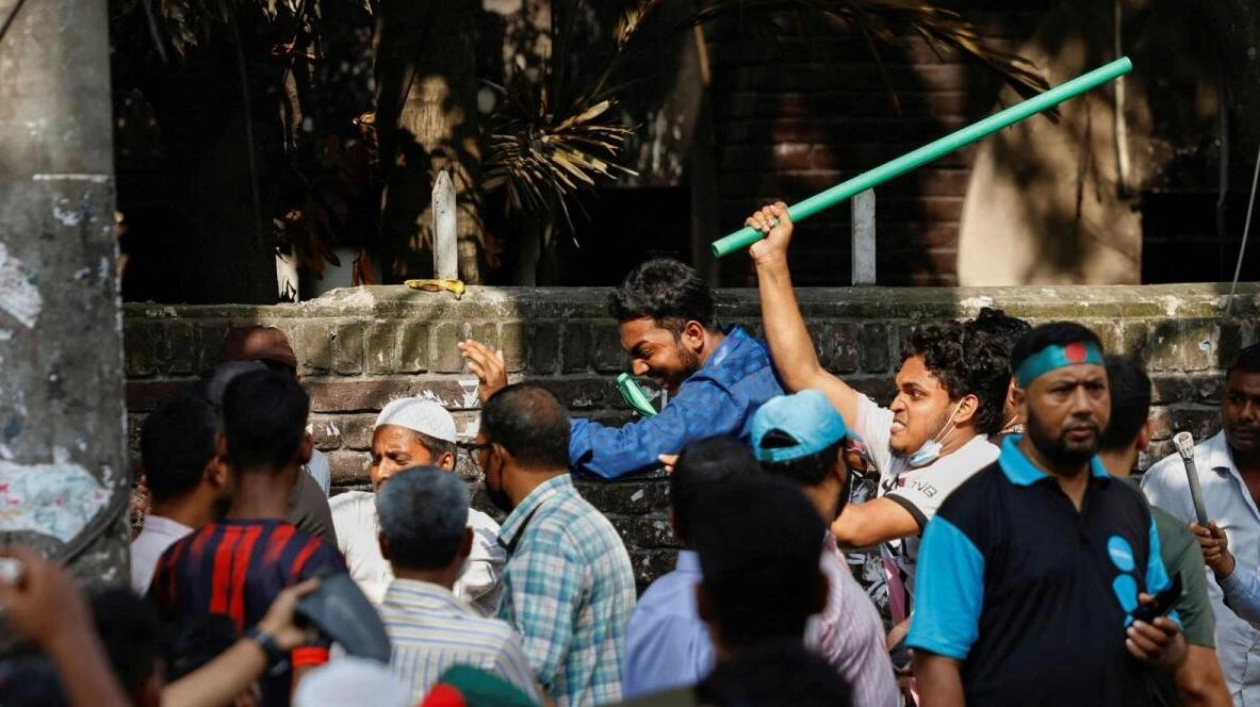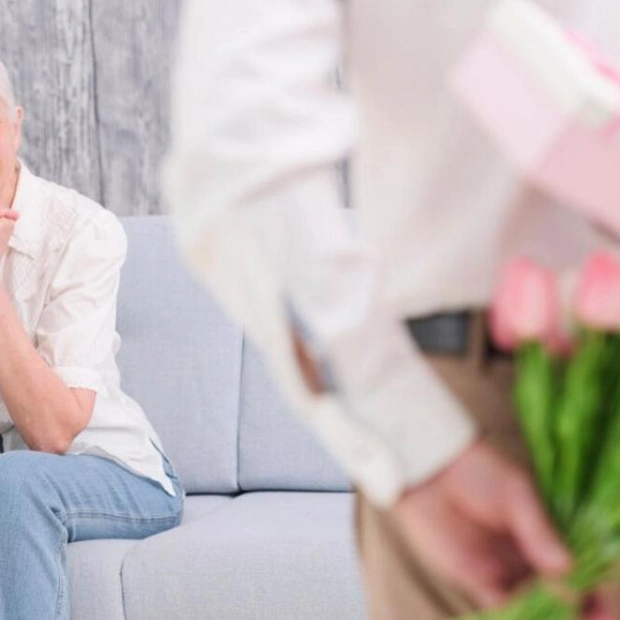On Thursday, groups pledging to protect Bangladesh's student-led revolution patrolled the area of a planned rally for the ousted Prime Minister Sheikh Hasina, assaulting some of her suspected backers with bamboo rods and pipes. Hasina, aged 76, escaped to neighboring India via helicopter last week as student protests engulfed Dhaka's streets, marking a dramatic conclusion to her 15-year authoritarian reign. The interim government, now led by Nobel laureate Muhammad Yunus, has extended an invitation to UN investigators to examine the violent incidents associated with her removal, which resulted in hundreds of casualties at the hands of security forces.
Thursday also marks the anniversary of the 1975 assassination of Hasina's father, Sheikh Mujibur Rahman, a national hero, during a military coup. This date was previously declared a national holiday by her administration. In past years, large rallies were held across Bangladesh to commemorate the event, but those who rejoiced in Hasina's downfall were determined to prevent her Awami League party from regaining strength.
Imraul Hasan Kayes, 26, told AFP, "Fugitive and dictator Sheikh Hasina has commanded her thugs and militia to assemble at the site to orchestrate a counter-revolution. We are here to safeguard our revolution and ensure it remains in our control." In the absence of police, hundreds of men, predominantly non-students, formed a human barrier blocking the street leading to Hasina's former family residence, where her father and numerous relatives were murdered 49 years ago. The site, once a museum dedicated to her father, was set ablaze and vandalized by a mob shortly after Hasina's departure.
Several individuals believed to be supporters of the Awami League were beaten with sticks, while others were forcibly removed. In her first public address since her abrupt exit, Hasina urged supporters to "pray for the salvation of all souls by presenting floral wreaths and offering prayers" at the historic site. During her tenure, she was accused of fostering a personality cult around her father, whose image is featured on every banknote. Hasina amended the constitution to mandate that his portrait be displayed in all schools, government offices, and diplomatic missions.
Tom Kean of the International Crisis Group noted, "Her government even criminalized online criticism of him, with penalties up to 10 years in prison. While many still hold Sheikh Mujibur Rahman in high regard for his accomplishments... this policy stifled genuine discourse about his legacy." Thousands of civil servants were mandated to participate in public commemorations on the anniversary of her father's death, with Awami League organizers setting up temporary PA systems in Dhaka to broadcast Mujib's speeches and devotional songs lauding his leadership.
The interim government has discontinued the observance of this politically sensitive holiday, instructing bureaucrats to stay at their posts. The sounds echoing through the city of 20 million on Thursday were the usual cacophony of honking horns and engine noises from its perpetually congested traffic. Hasina's statement came just hours after a court in Dhaka initiated a murder case against her, two top Awami League associates, and four police officers linked to the unrest. Other prominent party politicians have been arrested in separate investigations, including former law minister Anisul Huq and business advisor Salman Rahman, who appeared in court under heavy police protection, handcuffed and wearing helmets.
Yunus, 84, returned from Europe to lead a temporary administration facing the daunting task of implementing democratic reforms. He was awarded the Nobel Peace Prize in 2006 for his groundbreaking work in microfinance, which has lifted millions of Bangladeshis out of poverty. As "chief adviser" to a caretaker government composed mostly of civilians, with the exception of a retired brigadier general, Yunus has expressed his intention to conduct elections "within a few months." Hasina's regime was widely criticized for extensive human rights violations, including the arbitrary detention and extrajudicial killing of thousands of political adversaries. The interim cabinet has announced that UN investigators will arrive next week to investigate the "atrocities" committed during the protests that led to her ouster.






